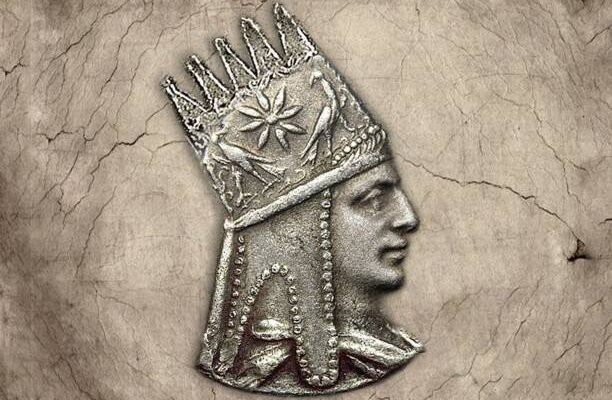Throughout the annals of history, the title of “king” has been synonymous with power, authority, and regal splendor. From the mighty pharaohs of ancient Egypt to the formidable rulers of Mesopotamia, the ancient world was marked by a multitude of kings who left an indelible mark on the tapestry of time. As we delve into the corridors of antiquity, it becomes evident that these monarchs, despite their diverse cultures and regions, shared certain common traits that defined their roles as leaders. This article seeks to unravel the intricacies of these shared characteristics, shedding light on the essence of kingship in the ancient world.
Divine Connection and Legitimacy:
 (Photo from iStock)
(Photo from iStock)
One of the foremost traits that set ancient kings apart was their perceived connection to the divine. In many ancient societies, rulers were not merely mortal beings but were considered the intermediaries between the earthly realm and the gods. The pharaohs of Egypt, for instance, were believed to be the living gods, the sons of Ra, the sun god. This divine connection bestowed upon them a sense of legitimacy and authority that was unparalleled.
The Code of Hammurabi, a Babylonian legal code from the 18th century BCE, emphasizes the divine authority of the king in administering justice. This divine legitimacy not only solidified the ruler’s grip on power but also served to maintain social order and cohesion within the kingdom.
Military Prowess and Leadership:
The ancient world was a realm where the sword often spoke louder than words. Kings were expected to be not only competent military leaders but also symbols of strength and courage. Whether it was the Macedonian conquests of Alexander the Great or the military campaigns of the Persian kings, the ability to lead armies into battle was a crucial trait for any ancient monarch.
King Leonidas of Sparta, immortalized for his leadership at the Battle of Thermopylae, exemplifies the martial prowess expected of ancient kings. The ability to inspire and command the loyalty of troops was essential for the survival and expansion of kingdoms. Military success often translated into political stability and enhanced the ruler’s prestige, reinforcing the perception of their divine mandate.
Architectural Legacy:
Kings of the ancient world were not only builders of empires but also architects of grandeur. Eventually, the construction of monumental structures served as a tangible testament to their power and wealth. The pyramids of Giza, constructed as tombs for the pharaohs, stand as enduring symbols of ancient Egyptian kingship. These colossal structures were not only engineering marvels but also showcased the ruler’s ability to marshal vast resources for monumental projects.
In Mesopotamia, the ziggurats, towering temple-pyramids, were constructed as platforms for religious worship and symbols of the king’s connection to the divine.
Cultural Patronage and Intellectual Pursuits:
Beyond the battlefield and the construction site, ancient kings were often patrons of culture, art, and intellectual pursuits. The flourishing of the arts and sciences under royal patronage was a common trait among ancient monarchs. The pharaohs supported a vibrant artistic culture in ancient Egypt, with intricate hieroglyphics, monumental statues, and elaborate burial practices.
In ancient Greece, kings like Pericles played a pivotal role in fostering the intellectual achievements of the Golden Age of Athens. The patronage of philosophers, playwrights, and artists contributed to the cultural richness of the Hellenistic world. Similarly, Indian kings, such as Ashoka the Great, promoted Buddhism and sponsored the creation of edicts and pillars that spread moral and ethical teachings.
Administrative Acumen and Legal Codes:
 (Photo from iStock)
(Photo from iStock)
Effective governance was a hallmark of successful kingship in the ancient world. The ability to establish and maintain a well-ordered state required administrative acumen and the implementation of legal codes. Hammurabi’s Code, one of the earliest known written legal systems, illustrates the importance of law in Mesopotamian society. The code outlined punishments for various offenses and emphasized the king’s role in dispensing justice.
In ancient China, rulers like Emperor Qin Shi Huang standardized weights and measures, coinage. And writing systems, contributing to administrative efficiency. The Mauryan Emperor Ashoka, known for his rock edicts, promoted dhamma (moral and righteous conduct) as a guiding principle for governance.
Dynastic Succession and Family Connections:
The continuity of power often relied on the establishment of dynasties, with kingship passing from one generation to the next. And kings took great care to secure the succession of their offspring. The pharaohs of Egypt, for example, often married within the royal family to maintain the purity of their bloodline.
In Mesopotamia, the succession of kings within a dynasty was a common practice. This hereditary system, while ensuring stability, also posed challenges, as not all heirs possessed the qualities necessary for effective rulership.
Conclusion:
In unravelling the most common traits of kings from the ancient world. It becomes evident that these rulers were multifaceted figures who embodied the aspirations and values of their respective civilizations. Whether through divine connections, military prowess. Cultural patronage, administrative acumen, or family ties. Ancient kings navigated the complexities of their roles with a keen understanding of the expectations placed upon them.
The legacy of these kings continues to reverberate through the corridors of time. Shaping our understanding of leadership, power, and governance. In exploring these common traits, we embark on a journey through the annals of history. Where the crowns of kings once glittered beneath the sun. And the weight of their responsibilities shaped the destiny of nations.
These ancient kings, each a unique thread in the rich tapestry of history. Left an enduring imprint on the collective consciousness of humanity. Their leadership transcended the boundaries of time and geography. Providing insights into the complexities of governance and the multifaceted nature of power. As we reflect on their legacies, we gain a deeper appreciation for the dynamic interplay of divine authority. Military prowess, cultural patronage, administrative sagacity, and familial connections that defined the essence of kingship in antiquity.
Reference:
The Crucible Project
Want to know about top historic discoveries that took place in the world, what are you waiting for click on the link below:
Top 10 Historic Discoveries in the World




